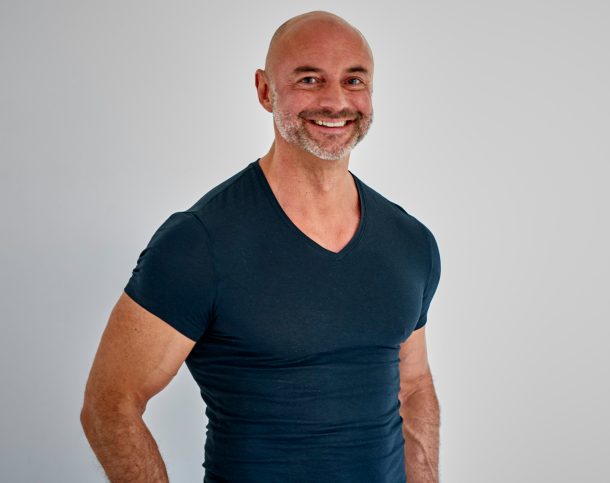I’m going slightly mad!
The constant calls. The never ending emails. The blurred lines between office hours.
Two of my clients were overstepping the mark and I was burning out, fast.
Making myself accessible 24/7. Always on. Had to stop.
But where to start?
It wasn’t until I built stronger boundaries that I finally took control of the situation.
If you’re feeling overwhelmed and drained, I’ve got you.
Here are 5 signs your boundaries need strengthening.
1. Recognising over availability
My name is Arnold, and I’m a recovering people pleaser.
The problem?
At the start of my coaching journey, I believed access all hours was a competitive advantage.
Little did I realise I was setting a precedent. I was devaluing my time.
Instead of increasing my perceived value, I found myself working around the clock.
I felt obligated to respond to every request. Evenings, early mornings, on the weekends, it didn’t matter where I was or what I was doing. I was there.
No wonder I felt exhausted.
The solution?
I set specific work hours and established a clear communication policy.
I let my clients know when I was available, and more importantly when I wasn’t.
I clarified my response times, the best ways of reaching me and automated the process.
In short, I shifted from expectations to agreements.
The result?
My personal time felt protected and my clients respected my professional hours.
2. Avoiding emotional entanglement
As a coach, it’s natural to empathise with your clients. Yet there’s a fine line between empathy and emotional entanglement.
The second sign of weak boundaries is becoming too emotionally invested in your clients’ outcomes.
The key here is to maintain balance and keep a healthy distance.
Be supportive, but don’t carry your client’s emotional baggage.
This will enable you to remain objective and effective in your coaching.
3. Maintaining clear, consistent policies
When it comes to consistent policies, none are clearer than my Osteopath, John Taberman-Pichler.
On his website home page he states:
– From 6th April 2023 the fee will be £80.00.
– I accept cash, credit or debit cards (but not AmEx or cheques).
– Appointments are usually 20 – 30 minutes long, but can be less.
– If I do a job in 20 minutes, it’s because I spent 40 years learning how to do that in 20 minutes.
– You owe me for the years not the minutes.
– Please remember, I am here to provide a service. This is my job.
– I spend thousands of pounds a year paying for registration, insurance and staying up to date with the latest developments in my field of healthcare.
– When I meet you, it is a professional relationship.
– Please do not ask for a discount, no matter how well we may get on.
– Also don’t expect me to see you on my days off.
– Thank you for respecting my wishes.
Whether it’s payment terms or session structure, John provides clarity and consistency.
Be more John!
Make your policies clear from the start and don’t bend them for anyone.
This sets a professional tone and ensures your boundaries are respected.
Next up, the importance of saying “no”
4. Learning to say “No”
How many times have you said “Yes” when you meant “No”?
Saying “no” is a superpower which protects your time and energy.
For example, learning to say “no” when a potential client does not align with your coaching style or values is critical.
Firstly, it ring fences those clients created in true partnership. Secondly, it protects your energy to be at your best.
It may seem daunting at first, but saying “No” is a crucial skill to master.
Practice this to maintain strong boundaries and build a thriving business.
5. Protecting personal time
Finally, neglecting personal time is the fifth sign.
Your personal time is precious and vital for your well-being.
If your enthusiasm is waning and your energy declining, it’s time to address how you’re safeguarding your personal time.
One of the best habits to establish is scheduling “Me time”.
“Me time” to disconnect and recharge.
To take a walk in the park. To take the afternoon off. To enjoy kids activities. To be present for events they’re involved in. To spend time with family and friends.
Whatever “Me time” is for you.
Schedule time for yourself and out it in your calendar.
Treat it with the same respect and importance as your coaching sessions.
Notice how that feels.
Conclusion
Now you recognise the signs to creating stronger boundaries, it’s time to act.
Start today by identifying which sign resonates most with you and address it head-on.
Shift from over availability to setting specific work hours.
Move from emotional entanglement to maintaining a balanced support system.
Align your policies, learn to say “no,” and prioritise your personal time.
Remember, you’re in control.
You have the power to set boundaries which serve you.
Your energy is precious, but your time is irreplaceable.
Protect them equally.
Your clients will respect you and you’ll have time and space to recharge and rejuvenate.
A thriving practice starts with a thriving coach.
Which step will you take today to protect your boundaries?


